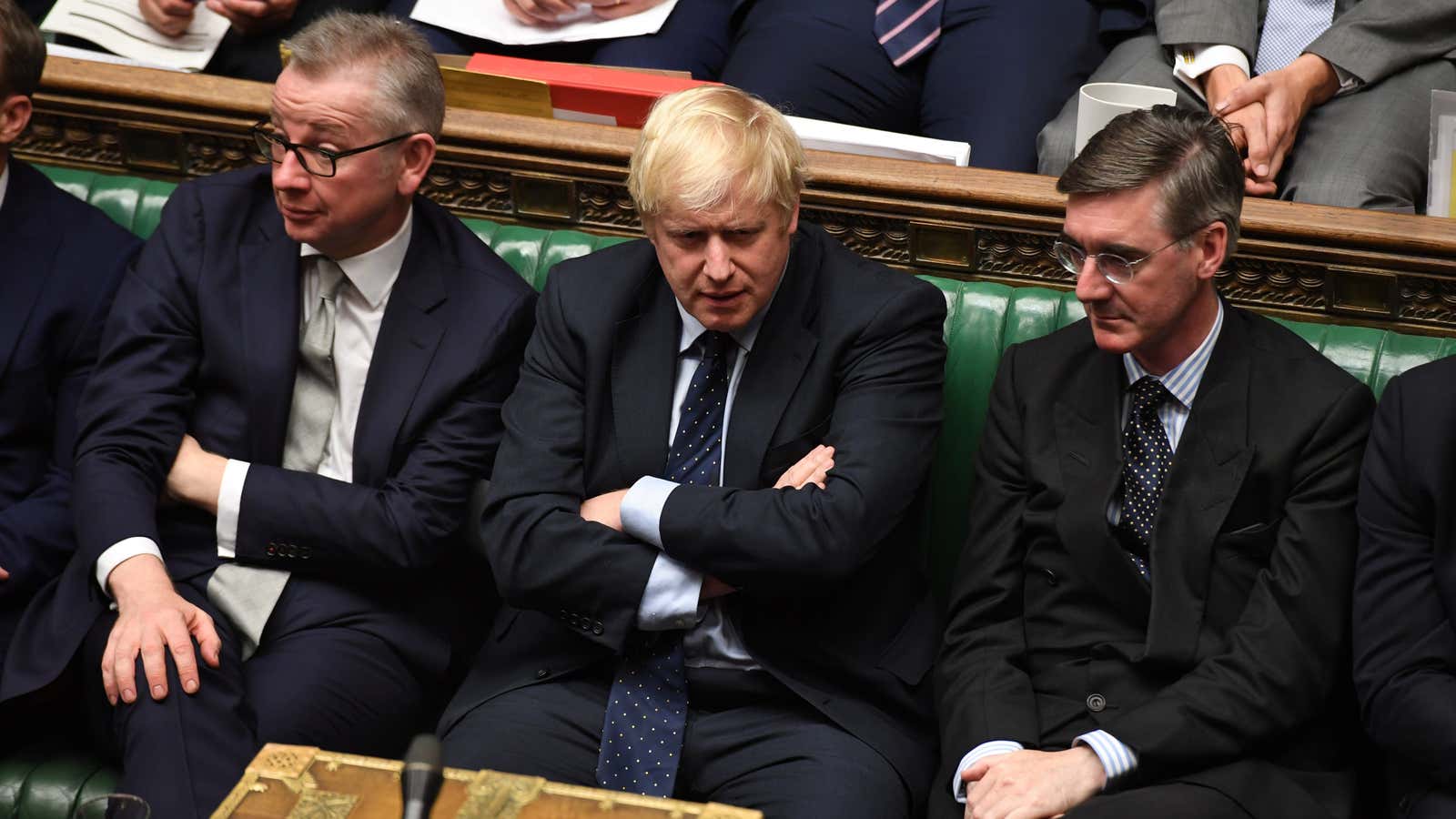The UK parliament today voted to delay Brexit until at least Jan. 31. The country had been on track to crash out of the EU on Oct. 31, unless a new deal could be reached before then.
“No deal is opposed by every business group, every industry body, every trade union, and by this House, as today’s vote and others have shown,” opposition leader Jeremy Corbyn said after the bill was passed.
The 327 to 299 vote follows yesterday’s drama in parliament, which saw prime minister Boris Johnson lose his working majority of just one seat. Conservative MP Phillip Lee was seen crossing the aisle as Johnson spoke, defecting to the centrist and pro-Remain Liberal Democrats.
The bill forces Johnson to ask the EU to delay Britain’s departure until Jan. 31, and then agree to the new deadline—or possibly a later one—should the bloc grant the postponement.
Johnson responded by asking parliament to agree to a snap election on Oct. 15. His government says its willingness to leave the EU without a deal is its strongest lever in negotiations with Brussels, and Johnson said today’s bill would force him “to surrender in international negotiations.”
However, Johnson likely does not have the votes to secure his call for a new election, which requires the support of two-thirds of MPs. Corbyn has said his Labour party would not vote for an election until the Brexit delay bill has been implemented. Johnson was dealt a further blow when the Scottish National Party (SNP) said it would also vote against the election.
Yesterday, 21 Conservative MPs joined opposition lawmakers in voting to take control of the parliamentary timetable, which made today’s vote possible. After that defeat, Johnson barred party members who voted against his government from representing the Conservatives in parliament.
Among the rebel Tories are Philip Hammond, former finance minister under Johnson’s predecessor Theresa May. Others include Ken Clarke, the longest-standing MP in the House, as well as Nicholas Soames, grandson of wartime UK leader Winston Churchill. Johnson reportedly came under fire at a meeting of backbench MPs for ejecting the rebels.
Today’s vote in favor of delaying Brexit has pushed the pound up further, after it surged yesterday on news that Johnson lost his working majority. The pound is often seen as a proxy for the risk of a no-deal Brexit.
The Brexit delay bill must still pass through the House of Lords. Conservatives are looking to filibuster in the upper chamber to block it, and more than 100 amendments have been tabled by Conservative peers. At least one member of the Lords, Dick Newby, has packed a duvet for a session that could run overnight and beyond.
